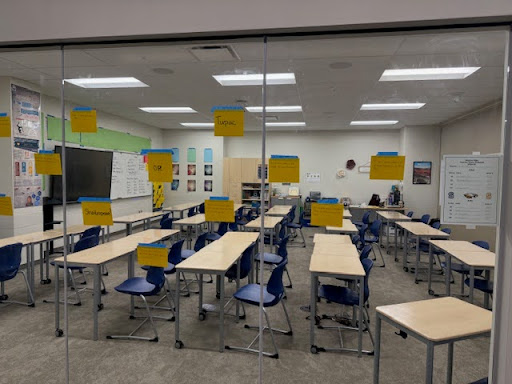After more than two years of indiscriminate bombing, widespread humanitarian violations, inflammatory remarks from Israeli officials referring to Palestinians as “human animals,” and $17.9 billion in U.S. aid given to Israel under the Biden administration; a ceasefire agreement between Hamas and Israel was finally signed on January 19. This seemed like a positive resolution to a violent and horrific chapter, but both Donald Trump and Benjamin Netanyahu have signaled that the conflict is far from over. Trump has proposed that the U.S. take control of Gaza to “ensure stability” and has suggested the forced relocation of Gaza’s 2.3 million residents to Egypt and Jordan, claiming they would be “better off.” This forced displacement mirrors past colonialism and ethnic cleansing, raising urgent questions about the world’s response and the risk of history repeating itself.
Tala Hammond is a first generation Palestinian American living in Utah. She has a Bachelor’s degree in International Studies, and she is currently working on a capstone that focuses on legislation regarding accountability and consistency for foreign assistance to countries that break human rights laws and use the assistance harmfully. Hammond says most of her parents’ extended family was removed during the Nakba (The Nakba, which means “catastrophe” in Arabic, refers to the mass displacement and dispossession of Palestinians during the 1948 Arab-Israeli war, according to the United Nations.) Hammond feels that the consistent US support for Israel was incredibly upsetting, and motivated her to write a white paper for her capstone. “It’s essentially a document that outlines a legislation bill or a law, and it is a heavy suggestion on how that [law] should be executed,” she explained. Hammond is doing hers on the topic of foreign assistance to Israel. “Basically, there’s a lot of laws currently in place that say we are not allowed to give aid to countries that break human rights laws. It seems that there’s groups involved that directly try to make Israel an exception, and there should not be exceptions if money is being used to hurt innocent civilians.” Hammond believes that America’s unwavering support to the Israeli government is unethical and illegal.
She also explained that there are more Palestinians in Utah than we realize, and our support for them, person-to-person, matters. She explained, “We’re not that big of a population, but we are your classmates. We are your coworkers. We are in your community. It is our tax dollars, too, Utah state tax dollars that are funding what’s happening.” When asked how Skyline students can better understand the situation and lend their support, Hammond said, “I will say […] find Palestinian voices. If you know any Palestinians in the community—even just Middle Easterns are very affected by this. There is such a strong sense of community there, and they’re all hurting.” Hammond also emphasized the importance of language and rhetoric. “It’s not a war. There is no military against a military. I think when we say war, it can be misleading and think ‘oh, there’s nothing we can do, it’s between two countries,’ but it’s not between two countries.” She explained the power imbalance between citizens of Gaza and the IDF (Israeli Defense Forces), saying, “The word ‘war’ paints a picture that makes it seem like soldiers are being killed, when the highest casualties in Gaza are children.”
When asked about her opinion on Trump’s plan to own Gaza, she explained, “This is a problem I see in leadership a lot. It seems he did not consult with experts on the top.” Hammond believes he is ignoring the clear resistance he’s received for this plan. She said, “Gaza is not his to give away. This isn’t allowed. It’s illegal, it’s unethical, and there are a lot of other powers at play. I am very confused as to why he is not being removed from his position for causing such harm.” She claims Trump is setting inappropriate standards and normalizing ethnic cleansing. “It affects everybody when we normalize harmful leadership. [People] don’t think it affects them, but what’s to stop even more harmful policies affecting even more people? There’s no difference between sides; we just happened to be lucky enough to not be in their situation.” Hammond expressed the need for union and empathy through this time: “It is very basic, and it’s one of my favorite quotes – none of us are free until we are all free.”




